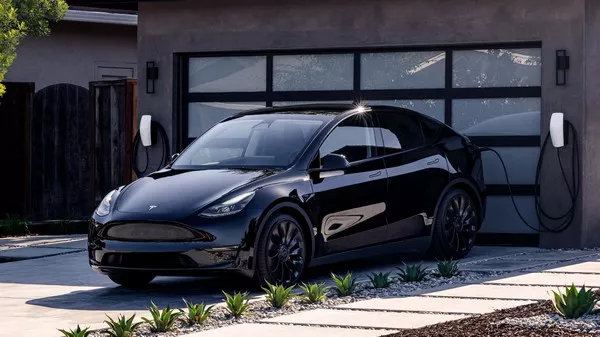The Tesla Model Y continues to lead the electric vehicle market, reaffirming its dominance with a 63% year-over-year increase in registrations in January, surpassing a million units worldwide. China played a pivotal role in driving this growth, emerging as a key market for electric vehicles.
At the beginning of 2024, plugin vehicles captured a 16% share of the global auto market, with battery electric vehicles (BEVs) accounting for 10% of this share. The global market benefitted from significant volume increases in less highlighted markets such as Thailand, Turkey, and Brazil, which saw year-over-year growth rates of 239%, 219%, and 263%, respectively.
Amidst a price war in various markets and the introduction of new, more affordable models, the global electric vehicle market is poised to maintain its robust growth trajectory. Forecasts suggest that the market share of electric vehicles could surpass 20% by the end of the year, with BEVs commanding a 15% share.
In January, BEVs experienced a 48% year-over-year growth, while plug-in hybrid electric vehicles (PHEVs) saw an impressive 91% increase, largely driven by the growing popularity of PHEVs in the Chinese market. China’s influence on the global electric vehicle market cannot be overstated, as it accounted for over 60% of all electric car sales worldwide in January. Notably, most plugin hybrids in China are distinct from those in other regions, often featuring range-extended capabilities and sizable batteries ranging from 30 to 40 kWh, with fast-charging capabilities.
The breakdown between BEVs and PHEVs in January stood at 61% and 39%, respectively, slightly lower than the average in recent years.
The Tesla Model Y maintained its lead as the top-selling electric vehicle globally in January, followed by the BYD Song, which retained its position from the previous year. However, increased competition within BYD’s lineup, including the ramp-up of the Song L and the forthcoming Sea Lion 07 BEV, raises questions about the Song’s future market performance.
The Tesla Model 3 secured the third position, demonstrating a strong start to the year. The introduction of the Model 3 refresh may further boost demand for the sedan, despite being in its seventh year of production.
Noteworthy is the AITO M7, backed by Huawei, which claimed the fourth spot globally in January. This achievement is remarkable considering it is a full-size SUV exclusively available in China. With nearly 30,000 deliveries, representing a substantial increase over the previous month, the AITO M7’s success signals its potential impact on the market. The Geely Galaxy L7 and Panda Mini also made waves, positioning Geely as a formidable competitor in the electric vehicle market, supported by other models within its lineup.
Other standout performers included the Deepal S7 SUV and the Volkswagen ID.3, underscoring the diversification of electric vehicle offerings and the increasing competition in the market.
Despite BYD’s historical dominance in the electric vehicle market, its representation in the top 20 rankings has declined over the past year. This shift reflects the evolving landscape of the electric vehicle market, characterized by emerging competitors and changing consumer preferences.
As the electric vehicle market continues to evolve, manufacturers must adapt to shifting consumer demands and technological advancements to maintain their competitive edge in this rapidly growing industry.






















